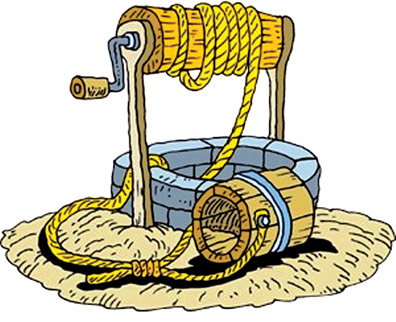|
While cleaning contaminated wells :
Eight die after inhaling poisonous gas
by Carol Aloysius
Recent media reports have highlighted a shocking incident of eight people
suffering from the deadly effects of inhaling poisonous gas while cleaning a
drinking water well at the Lunugala Maha Vidyalaya.
Three of the men had entered the well allegedly operating a water pump fuelled
by petrol or diesel to clean the contaminated water and had fallen unconscious.
 Five others who had come to help had immediately jumped into the well to rescue
the three and also fallen unconscious. While three of them were declared dead on
arrival at the nearby Lunugala District hospital, the other five survived the
near fatal accident thanks to the speedy interventions of the doctors on duty. Five others who had come to help had immediately jumped into the well to rescue
the three and also fallen unconscious. While three of them were declared dead on
arrival at the nearby Lunugala District hospital, the other five survived the
near fatal accident thanks to the speedy interventions of the doctors on duty.
The incident which caused panic and shock among residents of this little village
in the Uva Province and fear among the students using the well, has raised some
serious questions that need to be answered: Could these accidents have been
prevented with proper safeguards in place If so what are they Are there laws
relating to safeguard those cleaning wells and pits How many accidents of this
nature take place in homes, schools, temples and private places How many are
reported
To find out what exactly had taken place, the Sunday Observer first contacted
the Lunugala District Hospital (a kilometre away from the school,) to where the
victims were rushed for treatment.
Its close proximity to Lunugala Maha Vidyalaya informed sources said, was
probably one factor that helped save the lives of the five Good Samaritans who
sought to rescue their three less fortunate friends.
The District Medical Officer Dr. D.M. Samarasinghe said, it was too early to
say what exactly had caused the death of the three persons who were in the well,
as their bodies had been sent to the Badulla District Hospital for the
post-mortem examination. What we do know is that they had not used an electric
pump to clean the well and had instead used either a petrol or diesel pump.
If that was the case, they could have been exposed to a mixture of poisonous
gases such as methane and carbon dioxide and fallen unconscious and died. Or
they could have fallen into the well after being affected by the gases and
drowned. Both have fatal results and both are strong possibilities according to
the evidence we have.
Cleaning agents used during floods
The raging floods in several districts across the island has prompted the Health
Ministry to send out an SOS for a number of urgently needed items for affected
persons. One of them is purification tablets to clean wells, where water has
become contaminated with bacteria from the ground. We asked the Coordinator
Disaster Management Unit, Health Ministry, Dr Hemantha Herath what these were
and how safe they were .
We distribute chlorine powder for wells and tablets to purify drinking water.
It is unlikely there will be any adverse side effects from chlorine which gets
absorbed in small amounts in the water. Any excess amount can only leave a bad
taste in the mouth but nothing more, he said.
Dr Gunethileke confirmed his statement when he said, Chlorine has been used to
clean wells and drinking water for a long time. Up to now, we have had no
reports of chlorine toxification. |

